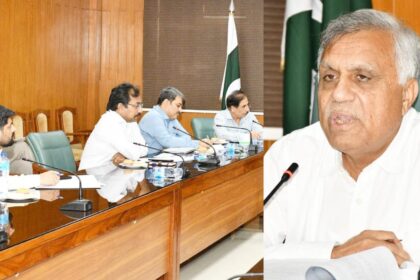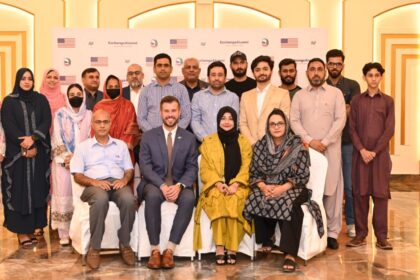A progress review meeting on strengthening routine immunization interventions took place in Quetta on 29 October, bringing together federal and provincial health officials, development partners and district leadership to assess implementation and plan next steps. The session was chaired by the Additional Secretary Health, Mr. Saqib Kakar, and attended by key coordinators including Mr. Anwar-ul-Haq (NEOC Coordinator), Mr. Inam-ul-Haq (EOC Coordinator) and Dr. Aftab Kakar (Provincial Coordinator EPI), as well as representatives from the Gates Foundation and partner agencies.
The Aga Khan University team facilitated a detailed review of Gates Foundation supported initiatives, notably SRIP and PPHI, with partner staff from AKU, WHO and UNICEF present alongside District Health Officers from the seven high-risk districts of Balochistan. Provincial EPI officials shared program updates and outlined upcoming activities to boost routine immunization coverage and service delivery in vulnerable areas.
Representatives from the Gates Foundation, including Mr. Michael Galway, Dr. Rehan Hafiz and Mr. Khurram Butt, acknowledged progress under the supported projects while stressing the need to further improve performance indicators and strengthen systems for sustained impact. Discussions emphasized data-driven planning, operational improvements and strategies to reach unreached communities as priorities for routine immunization scale-up in the province.
The Additional Secretary Health expressed appreciation for continued external support in reinforcing both routine immunization and the polio eradication program, and committed to a phased transition for selected interventions currently funded by the Foundation. Stakeholders agreed to advance planning for sustainability, ensuring provincial ownership and continuity of essential immunization services across high-risk districts.
The meeting concluded with a shared focus on translating review findings into actionable steps that reinforce routine immunization delivery, strengthen coordination among partners and prepare districts for a gradual handover of funded activities to provincial health authorities.











